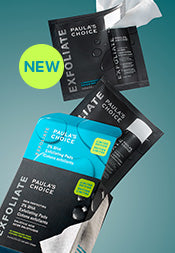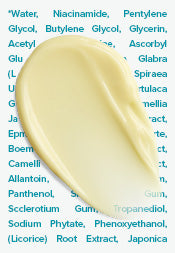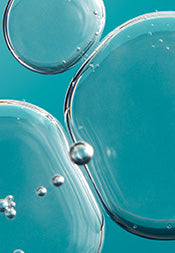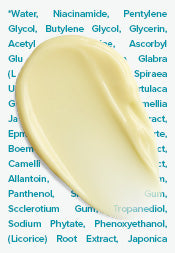The Best Face Masks for Sensitive & Oily, Acne-Prone Skin
People will try just about anything to get rid of acne, but research consistently shows that the tried-and-true trinity of acne skincare products — a good cleanser, salicylic acid (BHA) exfoliant, and benzoyl peroxide — should be your first line of defence against acne blemishes and spot treatment. You don’t have to stop there — adding a face mask into the mix can help combat oiliness and clogged pores... but not just any mask will do.
It’s crucial to use a face mask for sensitive acne and oily skin with a balance of absorbent and soothing ingredients to help un-gunk pores and soak up excess oil without leaving your skin looking aggravated and feeling sucked dry. So, which types of masks are best to get rid of those stubborn pimples and scars? You’re about to find out!
1. Charcoal Masks
Charcoal face masks are suitable for acne-prone skin because charcoal has a porous, extremely absorbent surface that attracts certain substances (including our skin’s oil) like a magnet.
Charcoal not only absorbs oil and surface debris, but also traps them so they cannot be redeposited on the skin. When you rinse the charcoal mask with water, everything you don’t want lingering on your skin goes down the drain, leaving pores fresh, clean, and less congested.
That said, we strongly advise against creating your own DIY charcoal mask. Applying pure charcoal powder to facial skin may seem easy, but it’s messy and can be abrasive. It’s also counterproductive for your sensitive skin. For better results, opt for a charcoal mask for acne-prone oily skin. These promote a balance that lets your skin benefit from charcoal’s absorbent properties without feeling dry or tight — and such masks are MUCH easier to remove than pure charcoal powder.
2. Clay Masks
A clay mask for acne-prone oily skin helps absorb excess oil from your face while also dislodging surface debris from congested pores. The result? Shine-free skin, potentially fewer breakouts, and smaller-looking pores. This treatment is also effective in reducing acne scars.
Word to the wise: When shopping for skincare products online and in-store, watch out for clay masks (or any face masks, really) that contain menthol, peppermint, essential oils, or denatured alcohol. All of these ingredients can irritate the sensitive skin, which makes oiliness and breakouts worse.
3. Face Masks with Fuller’s Earth
Another ingredient that you may find in masks for acne-prone skin is fuller’s earth. This is a basic clay-like ingredient with impressive mattifying properties that help soak up your skin’s excess shine.
While masks featuring fuller’s earth can be beneficial for oily, acne-prone skin, interestingly, fuller’s earth also happens to be one of the primary ingredients in cat litter. Believe it or not, you can find numerous recipes for making your own kitty litter mask online, but we highly advise against that, especially for your sensitive skin. Not only is the kitty litter texture too abrasive, but also most of the formulas contain fragrance and other irritating ingredients that can cause more pimples to break out. And that’s not the acne treatment you want to apply to your skin. Save cat litter for the cats, not your pores.
What About Salicylic Acid Face Masks for Acne Treatment?
Salicylic acid (beta hydroxy acid, or BHA) is incredibly effective for controlling breakouts, which is why it’s not uncommon to see it featured in face masks for acne-prone skin, but there can be issues with that. First and foremost, salicylic acid is generally more beneficial in a leave-on formula for acne spot treatment rather than a rinse-off mask because that allows adequate time for the BHA to go to work in pores to dissolve the built-up dead skin and other substances that can lead to breakouts.
Second, it’s important to note that salicylic acid must be formulated within a particular pH range to function effectively as an exfoliant, but many face masks don’t meet that criterion. While you may get some soothing benefits from using this ingredient in a mask, BHA works best in a well-formulated leave-on exfoliant.
There are many causes of acne breakouts, from changes in hormonal activity to allergic reactions. But that does not mean you can’t find a solution to get rid of the pimples and scars, and prevent them from developing again. As we have emphasised earlier, paying attention to the types of acne skincare products, from face masks to the exfoliants, can significantly impact the effectiveness of your treatment.
Learn more about choosing the right face masks for your skin.
Shop Paula's Choice face masks here with FREE local shipping!
References for this information:
Clinical, Cosmetic, and Investigational Dermatology, August 2015, pages 455–461
American Journal of Clinical Dermatology, December 2012, pages 357–364
Chemosphere, August 2005, pages 1129–1140
Ceska a Slovenska Farmacie, November 2004, pages 304–309
Chemical & Engineering News, April 2004, page 26
International Journal of Toxicology, January 2003, pages 37–102












